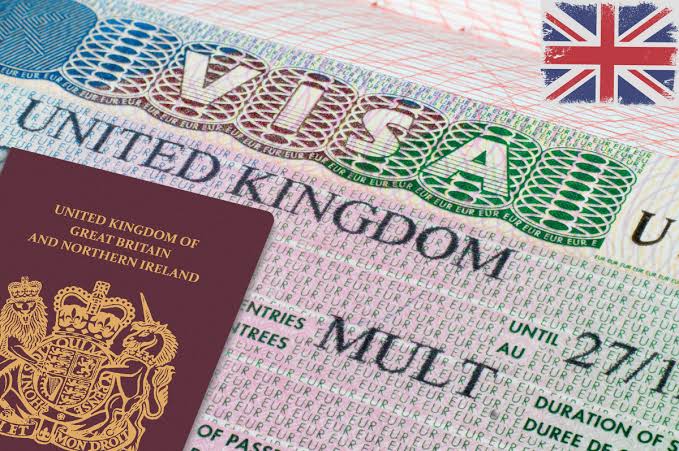Studying in Ireland is an exciting opportunity, and understanding the visa requirements is crucial for international students. This guide provides a comprehensive overview of the process for obtaining an Irish student visa, including required documents, timelines, and application procedures.
1. Understanding the Irish Student Visa
If you are a non-EU/EEA student intending to study in Ireland for more than 90 days, you will need a student visa (D visa). This visa allows you to stay in Ireland for the duration of your course, which should be a recognized full-time program.
Types of Student Visas
- C Visa: For short-term courses lasting less than 90 days.
- D Visa: For long-term courses (over 90 days), which is the most common for international students.
2. Eligibility Criteria
To qualify for an Irish student visa, you must meet the following criteria:
- Acceptance into a Recognized Program: You must have an official acceptance letter from a recognized Irish educational institution.
- Proof of Financial Means**: You need to show you can support yourself financially during your stay.
- Health Insurance: Proof of private health insurance is necessary.
- Accommodation Arrangements: Evidence of accommodation for the duration of your course.
3. Required Documents
When applying for your student visa, you must submit the following documents:
Essential Documents
- Visa Application Form: Completed and signed visa application form (AVATS).
- Passport: A valid passport with at least 12 months validity from your intended date of arrival.
- Photographs: Two recent passport-sized photos that meet the required specifications.
- Acceptance Letter: An original acceptance letter from your chosen Irish educational institution.
- Financial Evidence: Documentation demonstrating that you have sufficient funds to cover tuition fees and living expenses (bank statements, sponsorship letters).
- Health Insurance: Proof of private medical insurance valid in Ireland.
- Accommodation Details: Evidence of accommodation arrangements (rental agreement, university accommodation confirmation).
- Character Certificate: A police clearance certificate is required to confirm your good character.
- Educational Qualifications: Copies of your previous academic qualifications.
- Statement of Purpose: A brief personal statement outlining your study plans and reasons for choosing Ireland.
- Visa Fee Payment: Receipt of payment of the visa application fee (€60 - Single Entry Visa & €100 - Multi Entry Visa).
4. Application Process
Step 1: Gather Required Documents
Start by collecting all the necessary documents listed above. Ensure that they are accurate, complete, and translated into English if needed.
Step 2: Complete the Online Application
1. Visit the Irish student visa website.
2. Fill out the online visa application form (AVATS).
3. Pay the visa application fee.
Step 3: Prepare Your Visa Application Pack
Compile all your documents into a single application pack. Ensure everything is organized and clearly labeled.
Step 4: Submit Your Application
Submit your application in person at an Irish embassy or consulate.
Step 5: Wait for Processing
Visa processing times can vary. Generally, it takes about 4-12 weeks for a decision to be made, but it can be longer during peak times. It is advisable to apply 4 months before your intended travel date.
5. After Application Submission
Step 1: Attend a telephonic Interview (If Embassy conducts)
In some cases, applicants may be called for an interview. Be prepared to discuss your study plans and intentions in Ireland.
Step 2: Receive Your Visa Decision
You will be notified with the visa decision list every Tuesday and Friday on the Embassy of Ireland website. If approved, you will receive a visa stamp to affix to your passport.
Step 3: Pay the Immigration Registration Fee at GARDA
Upon arrival in Ireland, you must register with the local immigration office (usually within 90 days) to obtain an International Residence Permit (IRP). This requires an additional fee of €300.
6. Key Timelines
- 6-12 Months Before Departure: Begin researching and applying to Irish educational institutions.
- 3-4 Months Before Departure: Gather documentation and apply for your visa.
- 8-12 Weeks Before Departure: Submit your visa application to allow ample processing time.
- Upon Arrival: Register with the immigration office and pay the registration fee.
7. Additional Tips
- Stay Informed: Check the official INIS website regularly for updates on visa requirements and processing times.
- Prepare for Arrival: Research accommodation options and familiarize yourself with local customs and regulations.
- Plan Finances: Create a budget that includes tuition, living expenses, and travel costs.
Obtaining an Irish student visa is a structured process that requires careful preparation and attention to detail. By following this step-by-step guide, you can navigate the visa application process more effectively and focus on your exciting journey to study in Ireland. Ensure you start early, gather all necessary documents, and keep informed about any changes to visa policies. Studying in Ireland offers a unique opportunity to experience its rich culture and high-quality education, making the effort worthwhile.



.JPG)


